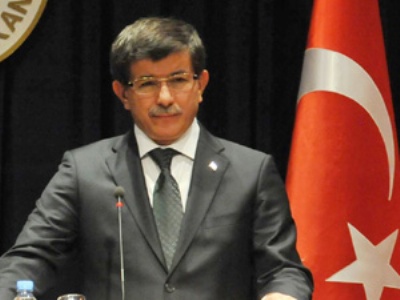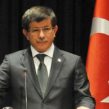
Turkey’s Involvement In Syria Raises the Stakes For Its Government
Publication: Eurasia Daily Monitor Volume: 8 Issue: 211
By:

Turkey has accelerated its contact with the Syrian opposition, while maintaining its criticism of the regime’s ongoing violent crackdown on the uprising. This development is in parallel to the growing involvement of the Arab League in the Syrian uprising. A recent deal agreed between the Arab League and Damascus heightened expectations for ending the months-long bloodshed. However, in a move reminiscent of the Baath regime’s delaying tactics while Turkey was seeking to convince President Bashar al-Assad to heed protesters’ calls earlier this year, the Syrian security forces continued their violent campaign even after the deal was announced. This reckless behavior prompted the Arab League to suspend Syria from membership. Rather than backing down in the face of growing regional isolation, the Baath regime preferred to launch a verbal assault on fellow Arab nations, accusing them of pursuing a very dangerous course of action (www.aljazeera.com, November 14).
Pro-regime protestors have attacked several diplomatic representations, which included attacks on the Turkish embassy in Damascus by a crowd of 1,000, and on consulates in Aleppo and Latkia. In response, the Turkish government issued an official protest, evacuated the families of diplomats, asked its citizens not to travel to Syria, and summoned the Syrian charge d’affaires in Ankara (www.mfa.gov.tr, November 13). While the Syrian Foreign Minister, Waled al-Moallem, issued an apology for the attacks, this did not prevent his Turkish counterpart Ahmet Davutoglu from arguing that Turkey would adopt a “decisive attitude” against these attacks and continue to support “the Syrian people’s rightful struggle” (Today’s Zaman, November 14).
These developments lend support to the arguments of the Syrian opposition. The opposition for a long time broke ranks with the Damascus regime, making clear that they would not settle for political reforms alone and their struggle would continue until Assad relinquishes power (EDM, June 7). In the intervening period, the opposition has been working hard to gain international recognition, and generate larger international momentum behind the military option – similar to the Libyan case.
In the aftermath of these recent events, Davutoglu met with the Syrian National Council, a group seeking to form a united front against the Syrian regime, which reportedly asked for permission to open an office in Turkey (Anadolu Ajansi, November 13). Previously, Turkey had hosted several meetings of the opposition groups, and Davutoglu had also received representatives from the Syrian opposition (Sabah, October 18). Moreover, Turkey has provided shelter to refugees fleeing the crackdown in tents inside Turkish border. At the same time, Ankara has imposed an arms embargo on Damascus and expressed its readiness to impose further sanctions.
With these courageous steps and Turkish leaders’ constant calls on the Syrian regime to listen to the people’s voice, Turkey has emerged at the forefront of international efforts for pro-democratic regime change in the country. Normally, Turkey’s pursuit of such a policy might have jeopardized its ties to other authoritarian Arab nations in the region, but given the increasing number of deaths in Syria, even monarchies in the region have asked Assad to leave power. Thus, the recent toughening of the Arab League’s position eases Turkey’s restraint in this unfolding crisis, as it provides a regional endorsement for its actions. Turkey is also acting in close coordination with the Arab League.
However, there is a strong body of opinion in Turkey critical of the government’s increasingly vocal confrontation with Syria. For many analysts, this new state of affairs in relations with Syria marks an obvious weakness in the government’s “zero problems with neighbors” policy, under which Turkey had sought to forge closer relations with Damascus and other capitals in surrounding regions. The fact that Turkey is on the brink of going to war against a leader with whom Turkish leaders had established a close friendship is seen as an indication of the failure of Turkey’s Middle Eastern policy.
Another line of criticism argues that the government is going too far in its stance on the Syrian regime and its decision to support the opposition. They question the prudence of extending shelter to the opposition groups of a neighboring country, which contradicts Turkey’s established state traditions, and argue that if Assad succeeds in surviving this challenge, Ankara will be left with no options to maintain normal relations with Damascus. Yet another criticism presents the Syrian uprising as being orchestrated by Western powers to change the political map of the region. In that view, Turkey’s assertive policy is also part of the same plan and is imposed upon it by Western powers. This somewhat conspiratorial thinking is at times raised even by members of the main opposition, the Republican People’s Party (Cihan, November 10).
While defending the government’s policy during a parliamentary hearing on his ministry’s budget, Davutoglu rebuked such allegations of “subcontracting.” Davutoglu defended Turkey’s position by saying that “in foreign policy, we make the plans, set the principles and develop the discourse. Sometimes when this is just and right, it might be in harmony with the United States. Sometimes with Iran … sometimes with Russia … sometimes with the EU. Thus, just because the United Sates is also taking a stance, shall we turn a blind eye to Syria?” Davutoglu justifies Turkey’s policy on humanitarian grounds and rejects any suggestion that Turkey’s “zero problems with neighbors” policy has failed. In this view, Turkey’s solidarity essentially lies with the Syrian people, and in an environment where the regime oppresses unarmed civilians Turkey cannot remain impassive (www.haberturk.com, November 14).
Granted, this new policy raises several security challenges. Since Iran, Russia and China still support Damascus, Turkey risks severing its ties with Iran over this issue (EDM, October 11). Moreover, Assad signaled several times that if Damascus is cornered, there will be extreme repercussions in the region, creating security challenges for all the regional actors. For Turkey, such threats usually bring to mind the issue of Damascus resorting to the “PKK card,” meaning it could use its leverage over some groups within the PKK to accelerate attacks on Turkish civilian and military targets. While President Abdullah Gul and other Turkish officials have warned Syria not to inflame the PKK (Star, November 9), there is no guarantee that Damascus will not choose this option when needed, nor is it clear what instruments Turkey will use to deter Damascus from following that path.




